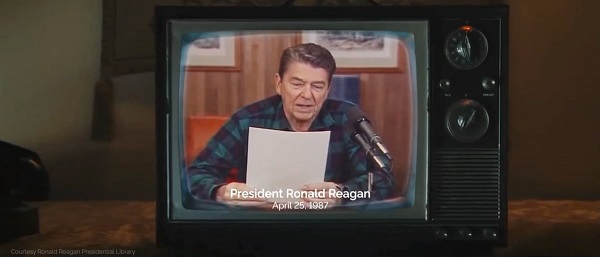Opinion
February 8 City Council may be allowing more parkland to be developed.

During an in-camera session at city hall, which excludes others, city council dealt with the park land at the end of Stanley Crescent. In camera means top secret but I was told that when “the” developer presents his plans the residents of Sunnybrook will be given an opportunity to offer input.
The houses around this area were built in the 60s and 20 years ago, the city assured me that the land was designated for the park system. A few months ago during the Molly Banister debate several people including councillors assured me there would be no development or that Spruce Drive would be extended south of 32 St.
What happened to protecting the wildlife corridor, or maintaining beautiful trail systems. The trail will most likely just run along the fences of housing south of 32 Street.
We have been lucky. For decades I have been able to look at trees from my livingroom, watch the deer and moose, the occasional skunk, porcupine and coyote but that will be coming to an end. I will miss it but I always expected that the city will need the money and destroy the parkland these animals call home.
This is not like the proposed bridge on the Molly Banister extension, this is not a fenced in cow pasture this is actually home to many animals. Will the environmentalists get ready to rumble? Don’t bother. There are a few city councillors fighting for the environment, give them a chance.
This area back onto 32 Street in the north end and I cannot see million dollar homes being built backing on to 32 St. The city requires a density of 17 housing units per hectare so I suspect they will build 12 suite apartments on the north side and million dollar homes along the creek.
Stanley Crescent has 6 houses on it now with about a dozen vehicles and the deer often sit in the yards watching the scenery, that will change as even 1 apartment building would triple the traffic.
All said in done, I cannot complain, I will miss the serenity of my front yard and the view but I count my blessings for all the years I had it.
A lot of trees will come down and the animals will move on, and I suspect we will move on too, because we were spoiled for so many years.
The city needs the money, because with stagnant growth we definitely do not need more houses.
It is what it is. Thank you.
Business
Trump Raises US Tariffs on Canadian Products by 10% after Doug Ford’s $75,000,000 Ad Campaign


From the Daily Caller News Foundation
President Donald Trump announced Saturday he is increasing U.S. tariffs on Canada by 10%, after the leader of the country’s largest province said he would be pulling an anti-tariff ad — but not until after it could air during Game 2 of the World Series.
Ontario Premier Doug Ford stated Friday his government plans to pull the ad in question after Trump said he was ending trade negotiations with Canada the night before. The spot featured the voice of President Ronald Reagan appearing to sharply criticize “high tariffs” and “protectionist” policy, and used an edited form of remarks the then-president made in an 1987 radio address.
In announcing his intention to pull the ad — which was intentionally broadcast on major networks in American markets — Ford noted he “directed” his team to keep it live until after the second game of baseball’s Fall Classic on Saturday night, a move Trump initially called a “dirty play.” The ad also ran Friday night during Game 1.
Dear Readers:
As a nonprofit, we are dependent on the generosity of our readers.
Please consider making a small donation of any amount here.
Thank you!
Trump then declared Saturday he was going forward with a 10% tariff increase on Canada.
“Their Advertisement was to be taken down, IMMEDIATELY, but they let it run last night during the World Series, knowing that it was a FRAUD,” Trump wrote in a Saturday afternoon Truth Social post. “Because of their serious misrepresentation of the facts, and hostile act, I am increasing the Tariff on Canada by 10% over and above what they are paying now.”
“Canada was caught, red handed, putting up a fraudulent advertisement on Ronald Reagan’s Speech on Tariffs. The Reagan Foundation said that they, ‘created an ad campaign using selective audio and video of President Ronald Reagan. The ad misrepresents the Presidential Radio Address,’ and ‘did not seek nor receive permission to use and edit the remarks. The Ronald Reagan Presidential Foundation and Institute is reviewing its legal options in this matter,’” Trump added in his post, citing an organization dedicated to continuing the late 40th president’s legacy.
“The sole purpose of this FRAUD was Canada’s hope that the United States Supreme Court will come to their ‘rescue’ on Tariffs that they have used for years to hurt the United States,” Trump’s post continues. “Now the United States is able to defend itself against high and overbearing Canadian Tariffs (and those from the rest of the World as well!). Ronald Reagan LOVED Tariffs for purposes of National Security and the Economy, but Canada said he didn’t!”
The ad campaign carried a price tag of $75 million CAD (Canadian), roughly equivalent to $54 million, according to The Associated Press (AP). The taxpayer-funded ad was paid for by Ontario’s provincial government, which the premier leads.
“We’ve achieved our goal, having reached U.S. audiences at the highest levels,” Ford said in a Friday statement reported by AP announcing his plan to pull the ad after Game 2. “Our intention was always to initiate a conversation about the kind of economy that Americans want to build and the impact of tariffs on workers and businesses.”
“I’ve directed my team to keep putting our message in front of Americans over the weekend so that we can air our commercial during the first two World Series games,” the Ontario premier added.
Trump announced Thursday night on Truth Social he was ending trade negotiations with Canada due to the ad.
“Based on their egregious behavior, ALL TRADE NEGOTIATIONS WITH CANADA ARE HEREBY TERMINATED,” the president wrote in the post.
“TARIFFS ARE VERY IMPORTANT TO THE NATIONAL SECURITY, AND ECONOMY, OF THE U.S.A.,” he added [sic].
“High tariffs inevitably lead to retaliation by foreign countries and the triggering of fierce trade wars. Then the worst happens. Markets shrink and collapse,” Reagan’s edited radio message can be heard in the ad, which included a backdrop of mellow music and a video montage of people and landscapes. “Businesses and industries shut down and millions of people lose their jobs. Throughout the world, there’s a growing realization that the way to prosperity for all nations is rejecting protectionist legislation and promoting fair and free competition.”
“America’s job and growth are at stake,” Reagan can be seen delivering the ad’s final line on a TV screen before the words “Ontario” and “Canada” flash on the screen.
The 2025 World Series features the Toronto Blue Jays and Los Angeles Dodgers. The Blue Jays are the only Major League Baseball (MLB) team based in Canada despite having only one Canadian-born player on its 26-man World Series roster.
Ford, a member of the center-right Progressive Conservative Party has led Ontario, Canada’s most populous province, since 2018. His late younger brother, Rob Ford, served as Toronto’s mayor from 2010 to 2014. The younger Ford made national headlines in 2013 after admitting to having smoked crack cocaine “in a drunken stupor.”
Premier Ford’s office did not respond to the Daily Caller News Foundation’s (DCNF) request for comment. The White House did not immediately respond to the DCNF’s request for comment.
Economy
Top Scientists Deliberately Misrepresented Sea Level Rise For Years

From Michael Shellenberger
Accelerated sea level is one of the main justifications for predicting very high costs for adapting to climate change. And while good scientists have debunked acceleration claims in the past, they did not clearly show how IPCC scientists engaged in their manipulations.
Scientists for years said they had proof that climate change was accelerating sea level rise. But that's not what the evidence shows. They knew the truth and misled the public. And now I have a long email exchange with a top scientist that shows how they did it. Massive scandal. pic.twitter.com/MNIX1025Fe
— Michael Shellenberger (@shellenberger) October 24, 2025
-

 Alberta17 hours ago
Alberta17 hours agoBusting five myths about the Alberta oil sands
-

 Business21 hours ago
Business21 hours agoQuebecers want feds to focus on illegal gun smuggling not gun confiscation
-

 Health20 hours ago
Health20 hours agoNew report warns WHO health rules erode Canada’s democracy and Charter rights
-

 Energy19 hours ago
Energy19 hours agoMinus Forty and the Myth of Easy Energy
-

 Fraser Institute18 hours ago
Fraser Institute18 hours agoMétis will now get piece of ever-expanding payout pie
-

 Business2 days ago
Business2 days ago‘TERMINATED’: Trump Ends Trade Talks With Canada Over Premier Ford’s Ronald Reagan Ad Against Tariffs
-

 Business1 day ago
Business1 day agoTrump Admin Establishing Council To Make Buildings Beautiful Again
-

 Business16 hours ago
Business16 hours agoCarney government risks fiscal crisis of its own making






